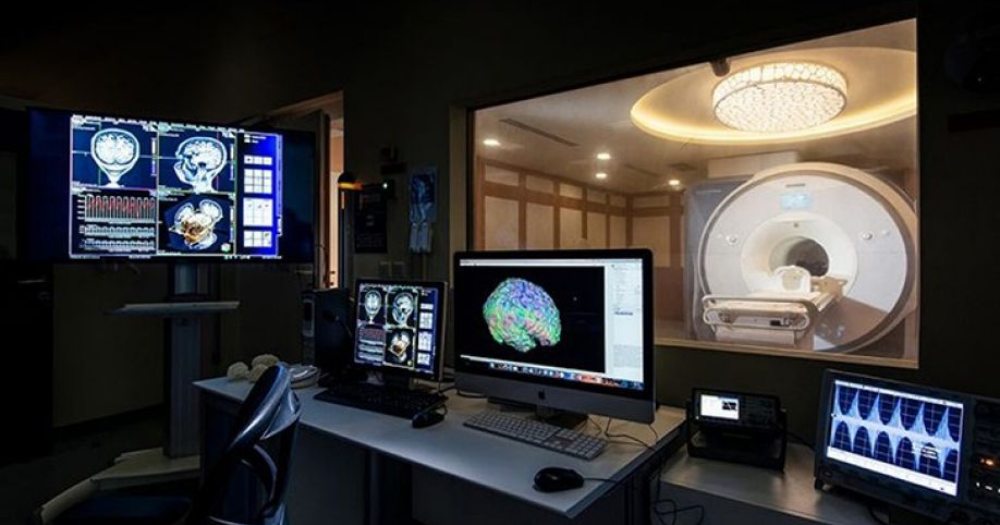Pioneering AI-powered MRI technique launches in Abu Dhabi for faster MS diagnosis

Abu Dhabi is quietly rewriting the playbook on how we diagnose multiple sclerosis (MS). New York University Abu Dhabi (NYUAD), Yas Clinic-Khalifa City, and the Abu Dhabi Stem Cells Center (ADSCC) have teamed up to take AI-powered MRI techniques out of the lab and into clinics. It's a bold move that could speed up MS diagnosis and bring precision medicine one step closer to everyday reality in the UAE.
"This is a perfect example of the 'bench-to-bedside' journey," said Professor Osama Abdullah, MRI Physicist at NYUAD's Center for Brain and Health. "Our work at NYUAD focuses on pushing the boundaries of what MRI can see. Partnering with the clinical expertise of Yas Clinic and ADSCC allows us to validate and apply these discoveries in a real-world setting."
How does it work?
Diagnosing MS has never been simple. Symptoms can look like other neurological issues, and conventional MRI images aren't always definitive. That uncertainty often forces doctors into a frustrating "wait and see" cycle — repeat scans, follow-ups, and even invasive procedures — before confirming a diagnosis.
The collaboration is changing that with two key innovations:
- FLAIRstar module: An AI-driven tool that scans MRI images for the "central vein sign" (CVS) — a tiny vein running through a lesion that is now recognized as a telltale biomarker for MS in the McDonald 2024 diagnostic criteria. By automatically flagging CVS, FLAIRstar cuts through diagnostic guesswork and helps neurologists separate true MS lesions from lookalikes caused by migraines or vascular issues.
- LAMINATE project: Backed by the National MS Society, this initiative takes NYUAD's refined MRI techniques and deploys them directly in Yas Clinic's practice, giving clinicians a clearer view of brain changes while keeping all patient data securely within the UAE.
Researchers at NYUAD also provided advanced MRI analysis for Yas Clinic's PHOMS clinical trial, monitoring how patients' brains changed over time and helping to evaluate the safety of treatments such as Extracorporeal Photopheresis (ECP).
Why does it matter?
Early, accurate diagnosis is everything in MS. The sooner doctors can confirm it, the sooner they can start treatment — which can slow the disease and improve long-term outcomes.
"Tools like FLAIRstar and LAMINATE are already improving diagnosis, accelerating treatment, and ultimately enhancing patient outcomes," said Dr. Lev Brylev, Consultant Neurologist at Yas Clinic.
By shrinking the time between symptom onset and a firm diagnosis, this collaboration gives patients a better chance at protecting their quality of life. It also means fewer unnecessary scans, lower costs, and less emotional strain for patients stuck in diagnostic limbo.
The context
This project is more than just a technical achievement — it's a statement about the UAE's ambitions in healthcare innovation. Abu Dhabi is developing a robust ecosystem where cutting-edge research meets world-class clinical practice, with the entire process taking place locally and securely.
The partnership between NYUAD, ADSCC, and Yas Clinic is part of a bigger story: a region investing heavily in becoming a hub for advanced medical research and care. By blending AI, imaging science, and clinical expertise, they're not just catching up with global standards — they're setting new ones.
💡Did you know?
You can take your DHArab experience to the next level with our Premium Membership.👉 Click here to learn more
🛠️Featured tool
 Easy-Peasy
Easy-Peasy
An all-in-one AI tool offering the ability to build no-code AI Bots, create articles & social media posts, convert text into natural speech in 40+ languages, create and edit images, generate videos, and more.
👉 Click here to learn more


